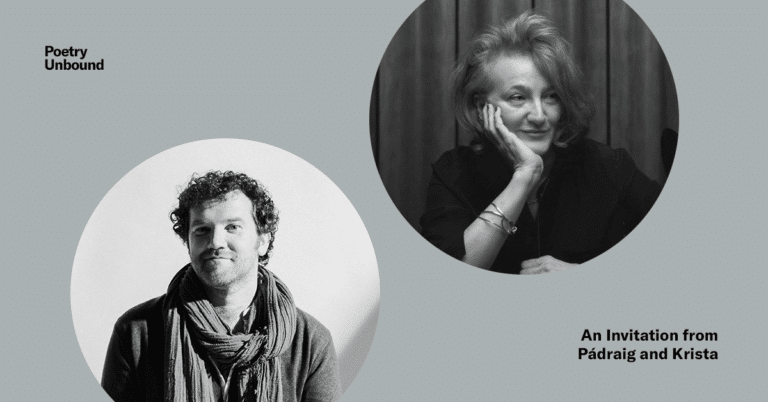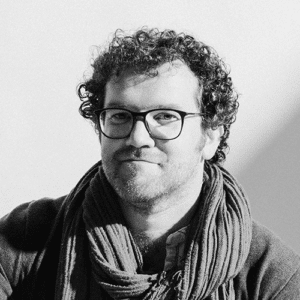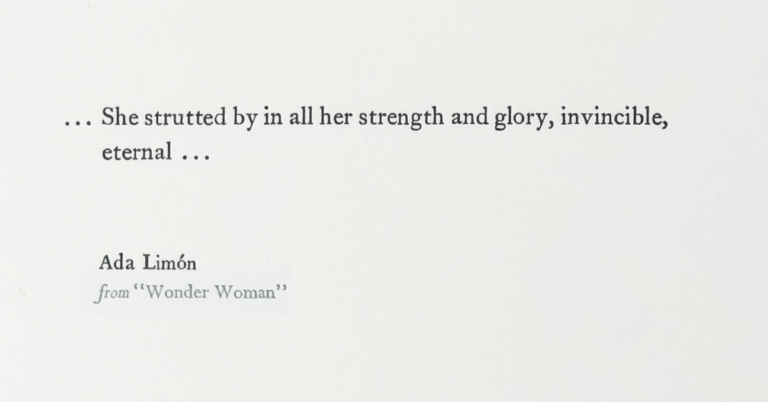BONUS: An Invitation from Pádraig and Krista
While preparing for the next season of Poetry Unbound, host Pádraig Ó Tuama sat down with Krista Tippett for a conversation about the power of poetry to find us at the exact moment we need it. Pádraig and Krista also invite listeners to share their experience of Poetry Unbound through our survey.
You can also sign up for the latest updates from Poetry Unbound.

Guests

Pádraig Ó Tuama is a theologian, writer, and conflict transformation practitioner. He is a member and former leader of the Corrymeela Community of Northern Ireland. His books include an incandescent memoir, In the Shelter: Finding a Home in the World; a prayer book, Daily Prayer with the Corrymeela Community; a book of poetry, Sorry For Your Troubles; and a book of theology and politics co-authored with Glenn Jordan, Borders & Belonging. He hosts the On Being Studios podcast Poetry Unbound. His forthcoming book, Poetry Unbound: 50 Poems to Open Your World, will be published in October 2022 and is available for pre-order wherever you get your books. Pádraig grew up in the Republic of Ireland, near Cork.

Krista Tippett created and leads The On Being Project and hosts the On Being radio show and podcast. She’s a National Humanities Medalist, and The New York Times bestselling author of Becoming Wise: An Inquiry into the Mystery and Art of Living. Read her full bio here.
Transcript
Transcript by Heather Wang
[“Praise the Rain” by Gautam Srikishan]
Krista Tippett: Hi, Pádraig.
Pádraig Ó Tuama: Hi, Krista.
Tippett: [laughs] You’re in New York.
Ó Tuama: I am.
Tippett: I’m in my recording cave in St. Paul.
Ó Tuama: [laughs]
Tippett: I think we decided one of the things we’d like to talk about sometime, and we’re going to do it now, is how we know, and we hear from listeners of Poetry Unbound, about this mysterious way a poem seems to meet you at just the right time, almost like it was written for you or like it’s been waiting for you to discover it. And I wonder if you remember the first time you met a poem in that way, or a poem met you.
Ó Tuama: There was a poem that we learned by heart in school, when I was a small boy, in Irish, that has a small verse in the middle of it that says: “As lonely as a tree is in the middle of the woods, so is the poet among the people.” And [laughs] it kind of appealed to the melodrama in me. I think I was nine or ten. [laughs]
Tippett: The Enneagram Four in you. [laughs]
Ó Tuama: [laughs] Yes, it did appeal to the Enneagram Four in me. But there was something, too — loneliness, for me, isn’t a condemnation. I think it’s just a realization, to say you’re alone with your thoughts and one of your most intimate relationships will be with yourself.
And in a strange, kind of awkward way, I had a sense of that. And it wasn’t even that I thought of myself as a poet. It was somehow that I needed permission to say: It’s OK to spend a lot of time thinking and spend a lot of time talking to yourself.
And that line struck me and moved me. And I never needed to learn that poem off by heart, because I knew it by heart by the time we finished reading it once, as a child. “Uaigneach crann / i lár na coille / Uaigneach file / thar gach duine” is how it’s said in Irish. It’s got a lovely music to it. And I remember just repeating that little verse to myself for the rest of the day and finding such comfort in it.
I might’ve been a slightly peculiar nine-year-old. [laughs]
Tippett: [laughs] When I think about that, this phenomenon of the way poems come into our lives and seem familiar, or maybe like they knew us already, I was thinking of some images I’ve been given across the years, like Roseanne Cash talking about writing music is like “catching” songs — like the songs are out there and you “catch” them. Or I was also thinking about that great and very poetic biblical scholar, Eugene Peterson, talking about prayer as “answering God”: not that we come with something out of a void, but that we are responding to something.
There’s something creative in there, and there’s something cosmic in there, and they both felt resonant with this way poems move through the world.
Ó Tuama: Well, there’s an idea in poetry criticism that there might only be one poem, and really what happens, anytime somebody writes a poem or listens to a poem deeply, is that we’re listening to the one poem that the world knows — perhaps the one poem that the world is or what being alive is. And this one poem can mean so many things, in so many directions.
And I think all the world’s religious traditions, and the artistic tradition, they’re all trying to say something about tuning to this elemental language that speaks to us about what it means to be alive. And sometimes that’s a lament, and sometimes that’s a celebration. And with Eugene Peterson and Roseanne Cash, in both of those I hear them both saying that it’s about listening. And I think the same thing is for whether you’re reading or writing a poem — both of those are about listening. And really, the poet is never in complete charge about what they’re writing, either. They, too, are attuned to something that they don’t have control over.
Tippett: It’s fascinating, isn’t it. I will say that knowing that you and I were going to speak today, I was looking at this book that just came in, and it’s an advance copy of Ada Limón’s new book of poetry that’s coming out in May, from Milkweed. And I had one of these experiences where I’m reading a poem that is — it’s set in 2020, but she doesn’t say 2020. She said, “I write / the date at the top of a letter, though / no one has been writing the year lately.” [laughs] “I write the year, seems like a year you / should write, huge and round and awful.”
And then she’s telling a story in the poem about finding a dead fledgling, about being outside, about working in the earth. And then, right in the middle of this — I feel like it almost snuck around the corner at me — this line: “Between / the ground and the feast is where I live now.”
And that, in a few words, encapsulated some absolutely ineffable dimension of the experience of living, of being alive in these last two years, right? And I would put all of my stories around that, and you would put all of your stories around that. And it just kind of knocked me — knocked me over.
Ó Tuama: “Between / the ground and the feast.”
Tippett: “Between / the ground and the feast is where I live now.”
Ó Tuama: Amazing.
You always say, Krista, that sometimes it hurts to read poetry. When you hear a line like that, it’s hard to go on to the next line, never mind to turn over the page, because there’s so much space in that. I mean, it takes such bravery, I think, to write a line like that, that Ada Limón has done. And then it opens up such space for people who are reading or listening to it.
Tippett: So would you read a poem of yours? I did ask you to bring something.
Ó Tuama: Yes, here’s a small, little one.
Tippett: And is this something you’ve written recently?
Ó Tuama: Yeah, it’s not that long. I’ve kind of only been reading it in the last year or so. It’s a sonnet, 14 lines, called “The Lifeline.”
“Here is what I know: when
that bell tolls — again — I
need to go and make something,
anything: a poem; a pie; a terrible
scarf with my terrible knitting; I
need to write a letter, remind myself
of any little lifeline around me.
When death sounds, I forget most
of what I learnt before. I go below.
I compare my echoes with other people’s
happiness. I carve that hole in my own
chest again, pull out all my organs once
again, wonder if they’ll ever work again
stuff them back again. Begin. Again.”
Tippett: Why did you choose that?
Ó Tuama: Well, for me, it’s a poem of consolation. I wrote it for a friend, Dave, and he’d been going through something, and I was feeling like I wanted to kind of be in solidarity with a friend who was struggling. And so I wrote it as a way of saying: I know what it’s like to be in a circumstance where you feel like, OK, here we are again, and I don’t want to be there, and the way that creativity can often be the first thing to be forgotten, when you’re in a time of constraint or a time of difficulty or demand — that can be a grief, or that can be anything. You might be caught up in a cycle of comparison or caught up in a way where you just think, oh, I’m never going to change. Whatever it is, the creative impulse can be the first thing to be forgotten, even though it can be the first thing that might help you recover yourself.
And I think there’s something for me, in the constant reminder to remind yourself that the creative is not just a decoration. It’s not just a luxury. The creative is an element. And “the creative” doesn’t have to mean I’m going to go and write an orchestral suite. It might be I’m going to make a scarf with my terrible knitting, for instance, or a pie, or write a letter, or do anything where you can see I participated in creating that. And that’s a relationship with yourself. And somehow there is a satisfaction in that that can also, then, burgeon the satisfaction for making justice, for making change, for making a movement.
Tippett: I’m going to need to keep thinking about this for a while, that there’s one poem. I guess the idea is, though, that we all, we have to put our stories, our words, our experiences, our rhythms to that poem; that it’s constantly rewritten, or written anew, or restated. [laughs].
And then, also, this line in this poem you just read — “I carve that hole in my own chest again, pull out all my organs once again, wonder if they’ll ever work again, stuff them back again” — that immediately, like a magnet, attracts very specific times and experiences and things I live with, right? And it would do that for many other people.
And what that magnet is drawing is going to be the variety of what we each bring to that — what that actually speaks to, has given voice to, in very particular lives. There’s something so mysterious in that, too.
Ó Tuama: Initially, if anybody ever said to me that there was a poem of mine they liked, I was embarrassed, and I didn’t want to seem like, Well, of course, you’d like it. You know? I wanted to shuck it off a bit.
But I learned quickly that when I said that to a poet who I admired, I didn’t want them to pretend to be bashful. I wanted to say a little bit more about how their poem meant something to me. And so I thought, well, if I want them to give that to me, I think I should be like that with other people and ask, because very quickly we’re not talking about the poem. We’re talking about life, and we’re talking about how a person’s life has added to the content of a poem.
And I think a poem itself is yearning for other partners to engage with it. The poet is only the first partner, and the idea is to get out of the way, and then the poem’s looking for many more partners.
Tippett: Somewhere I think you said — you likened it to — a poem becomes a tattoo, something of someone else’s that you then make your own. I love that image.
Ó Tuama: Yeah, for sure, and all the fantasy tattoos that I think I’d get would be made up of other people’s poetry. [laughs]
Tippett: [laughs] And I mean, we do hear that from listeners of Poetry Unbound, all the time.
Ó Tuama: There’s a beautiful poem of Leanne O’Sullivan’s where she’s writing a letter to her husband, who’s in a coma in hospital. And she’s writing a letter to him — she needs to go home, he’s been in a serious condition, and she feels guilty, almost, as she’s going home. And so she’s written this beautiful letter to him, entrusting him into the care of the nurse, Fionnuala.
And we’ve gotten a few letters from people, and I’ve had conversations with other people, that said: I recalled that letter and I recalled that poem when I was in hospital, visiting somebody who was in a serious condition. And they have added to the content of that poem and the beauty of that poem by saying: I took something from what Leanne O’Sullivan did. Maybe they, too, learned the name of the nurse or the cleaner or the doctor and recalled that. And somebody said that they wrote down the name of everybody who came into the room so that when this person that they loved, who was in a serious condition, would wake up, they’d be able to say: Here’s the name of everybody who’s come into the room to care for you in one way or another.
And I think that that demonstrates the power of creativity, because it helps us live. It isn’t just something pretty in the corner. It isn’t something to turn to when you’ve time. It’s something that makes time and something that, in a time of constraint, actually allows time to expand. And that, I think, is one of the functions of art.
Tippett: To me it also speaks to how even a line of poetry becomes like this portable ritual. Like I’m thinking about nine-year-old you, and that gave you these words that you — that they became a little ritual, and that you worked with them, and they worked in you. And there are moves that that poem makes, of naming and noticing. And then being introduced to the poem invites those rituals into their very particular, other experiences, beyond the reading of it.
I want to say, I know — well, a couple things. We’re going to wind down here. I just want to say how excited I am that you’ve been working on this Poetry Unbound book for the end of the year, and I know we’ll be talking about that later, but I just want to say that I’m excited.
And more in the immediate future, would you say a little bit about — we would like to invite people who are listening here and people that they want to share this invitation with to participate in a survey. But also, we’re extending an invitation ourselves. So why don’t you say some more about that.
Ó Tuama: Well, it’s one of the things that I always loved and admired about Speaking of Faith and On Being, over the years of listening to it, is that it’s a project that listens to whoever’s being interviewed, but also listens to the listeners, to the audience. And so we would love it if people who listen to Poetry Unbound would respond to us.
We’ve got a survey that’s got some questions, that asks a little bit about, do you listen all at once, or do you listen when it’s released — those kinds of things. But then it also says: Tell us a story about a way within which you heard a poem and then made that poem your own through the experiences of your own life. So ultimately, we’re really keen to listen to the people who are listening to Poetry Unbound. And we’ve got a survey: you can find it on onbeing.org/poetrysurvey.
We hear from so many people who’ve heard a poem and made it a part of their life, and they’ve met the poem with an experience, and they say: Oh, I recite that line to myself during this time or that time, or: That poem came alive to me, in a way. And we’d be thrilled to hear people’s responses. You can write them, you can even record your own voice. It’ll come to us privately, and we’ll read and listen to everything you send us. And it’s: onbeing.org/poetrysurvey. And you can also subscribe to updates, by going to onbeing.org/poetryunbound.
And all of those links are in the show notes, they’re in our social feeds, and we’ll make it easy for you to find them in order to share your experiences with us.
Tippett: And as we finish here, Pádraig, it feels only right to ask you to read your poem to us again.
Ó Tuama: “The Lifeline.”
“Here is what I know: when
that bell tolls — again — I
need to go and make something,
anything: a poem; a pie; a terrible
scarf with my terrible knitting; I
need to write a letter, remind myself
of any little lifeline around me.
When death sounds, I forget most
of what I learnt before. I go below.
I compare my echoes with other people’s
happiness. I carve that hole in my own
chest again, pull out all my organs once
again, wonder if they’ll ever work again
stuff them back again. Begin. Again.”
[“Praise the Rain” by Gautam Srikishan]








Reflections